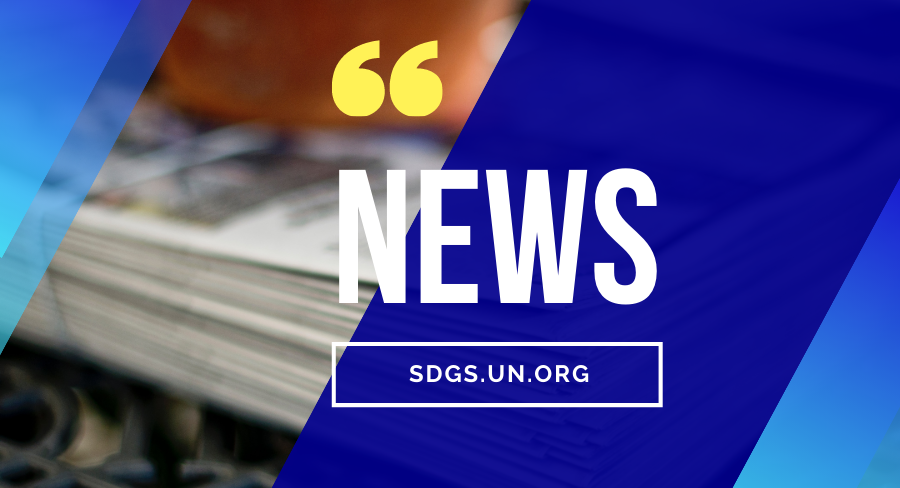News
Ocean Plastics Leadership Network, Speech by Ambassador Peter Thomson, UNSG’s Special Envoy for the Ocean

Ladies and Gentlemen,
Greetings to you all.
I’m Peter Thomson, the United Nations Secretary General’s Special Envoy for the Ocean. Firstly, may I thank you for this opportunity of speaking to you all, and secondly, I’d like to congratulate the Ocean Plastics Leadership Network for getting everyone together today in this virtual format.
I come from Fiji in the South Pacific and I clearly recall a world without plastic. I remember when I saw my first plastic pen and first plastic cigarette-lighter, and the sense of foreboding that something was amiss when these throw-away items began turning up in the flotsam along the tidelines of our previously pristine beaches.
Who can doubt that plastic is an ingenious product that has transformed everything from medicine to food supply systems, with its light-weight, waterproof, indestructibility? It is now present in everything from our clothing to our transport, from our computers to the homes in which we live.
But we have been eating too long on the lotus, if we imagine we can continue current practices of using and disposing plastic without dire consequence. We currently dump 11 million metric tons of plastic into the Ocean each year, and this figure is projected to double by 2030 and nearly triple by 2040. We have unleashed a plastic plague upon the planet. Plastic has entered the marine food chain from zooplankton up to the end consumer of seafood, namely Homo sapiens. We are consuming it and scientists are now finding evidence that nano-plastics are crossing our blood-brain and placental barriers.
In his address to the Climate COP in Madrid, the United Nations Secretary-General Antonio Guterres said we are, “knowingly destroying the life support systems of this planet”; and he followed up on this declaration when in his State of the Planet address at Columbia University last December, he said we have been waging a war against Nature and that the time has come to make peace. Surely, central to these peace talks must be an end to the plastic plague.
We have a clear path to the peace-table in the form of the proposed international treaty to stop marine plastic pollution. Last month at the first session of UNEA5, the call for such a treaty was articulated by many, with over seventy governments expressing their support.
Now is time when every voice that cares about the proper use and disposal of plastics must be heard. The United Nations does not exist in isolation. It is governed by Member States and that means your country and mine. So, your local voices need to be heard in your capitals; speak to your representatives, so that when the Member State delegates assemble at UNEA5’s second session, in February next year, they will have a clear mandate to get the job done.
The efficacy of international environmental treaties was demonstrated by the 1987 Montreal Protocol that phased out industrial production of chlorofluorocarbons. These chlorine-containing chemicals had been prevalent around the world in aerosols, foams and refrigerants, and prior to that international agreement in 1987, they were triggering the destruction of the planet’s stratospheric ozone, the gaseous layer that screens out cancer-causing ultraviolet light. The ozone layer is now steadily healing, thanks to the Montreal Protocol and the science-based application of logic and universal action. Marine plastic pollution demands the same.
Ladies and Gentlemen,
There could not be a better nor more important time for you to be having these conversations. We are operating in a new policy environment where rapid action in the face of crises is possible. The response to the coronavirus pandemic has shown us our potential to collaborate, innovate and overcome. But it has also shown us that we cannot have healthy economies without healthy humans. And we cannot have healthy humans on an unhealthy planet.
It is truly heartening that so many of you, from activists through to representatives of industry, have gathered in this space today. May you be co-creators of a collective might that drives us to the achievement of the proposed international treaty to stop marine plastic pollution.
There is a great responsibility upon us all to end our war on Nature, and face up to the difficult conversations, compromises, decisions and transformations that lie ahead. Opportunities for synergies and partnerships are many, but we must make haste, for time is not on our side.
Change is a constant, let us ensure it is change for the better. I look forward to hearing about all that emerges from the Dialogues.
Thank you for your attention.
